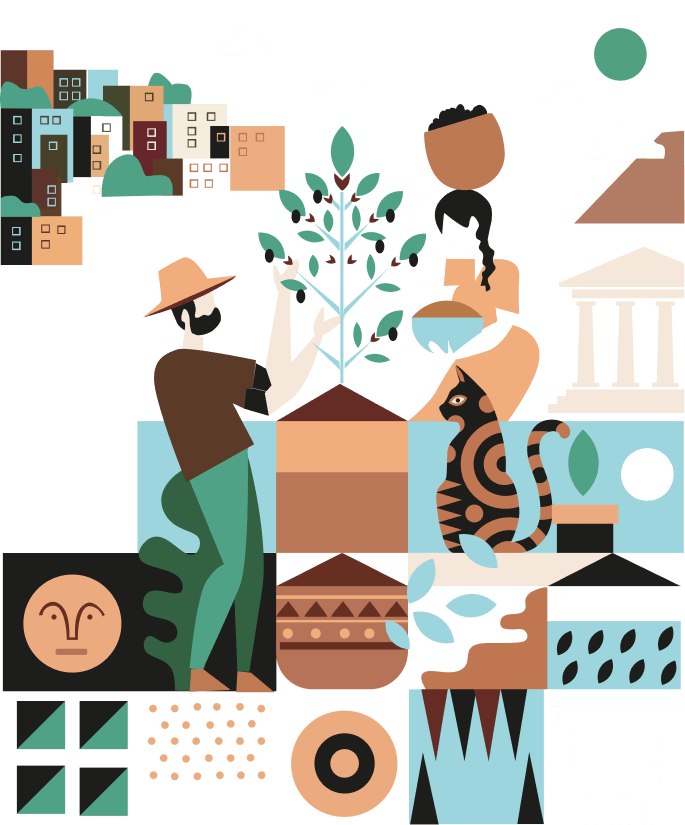From antiquity to the present day of Attica
The Thesmoforia was a festival that took place in various parts of Ancient Greece celebrating the fertility of the earth and paying homage to Demeter, the goddess of the soil, vegetation and fertility.
The goddess Demeter served as divine inspiration for the Athenians in their intial efforts to cultivate the land. Of course, organized cultivation was the catalyst for an organized and settled society supported by established institutions .With the Greek word for ‘institution’ being ‘thesmos’, Demeter soon became known as “Thesmophoros Demeter” and in her honour, the Athenians established the annual ‘Thesmoforia’, in which the bounty of the land was enjoyed and its quality appraised.
With the conceptual starting point of the promotion of the Thesmoforia, the “Attica Gaia Festival, New Thesmoforia, constitutes an essential “meeting point” between the land of Attica and its products, its natural environment and ecology, its history and rich cultural heritage, aiming to highlight the interconnection of the historical land of Attica and the cultural element with agri-food, the products of the region and the dimension of tourism.
A celebration of the land of Attica, a meeting point between culture, tourism and the primary sector.
The New Thesmoforia of today is a celebration that links the primary production sector with culture and tourism. A celebration of Attica’s land, inspired by the Thesmoforia that honoured Demeter, the goddess of soil, vegetation and fruitfulness and celebrated the fertility of the earth and of women. It is a celebration that showcases the natural crops and products that have thrived in this land throughout the millennia, each with their own bespoke divine patron: Cereal is watched over by Demeter, hence the Greek word for cereal is still ‘dimitriaka’; Athena keeps her heavenly eye on olives and olive oil and Dionysus, of course, looks after the grapevines and vinyards, encouraging us all to drink the wine they produce and make merry! Economic pillars of the Athenian State, these products throughout history have been inextricably linked with religion and culture, and to this day form part of the backbone of the the national economy, symbols of the productive identity of Greece.
Authenticity in the Travel Experience
The connection of the hospitality economy with primary production, the promotion of authentic and traditional local products and their integration in the travel experience as part of the unique Mediterranean diet enhance the competitiveness of the Attica Experience offered to the travelling public and sustainable tourism development.



